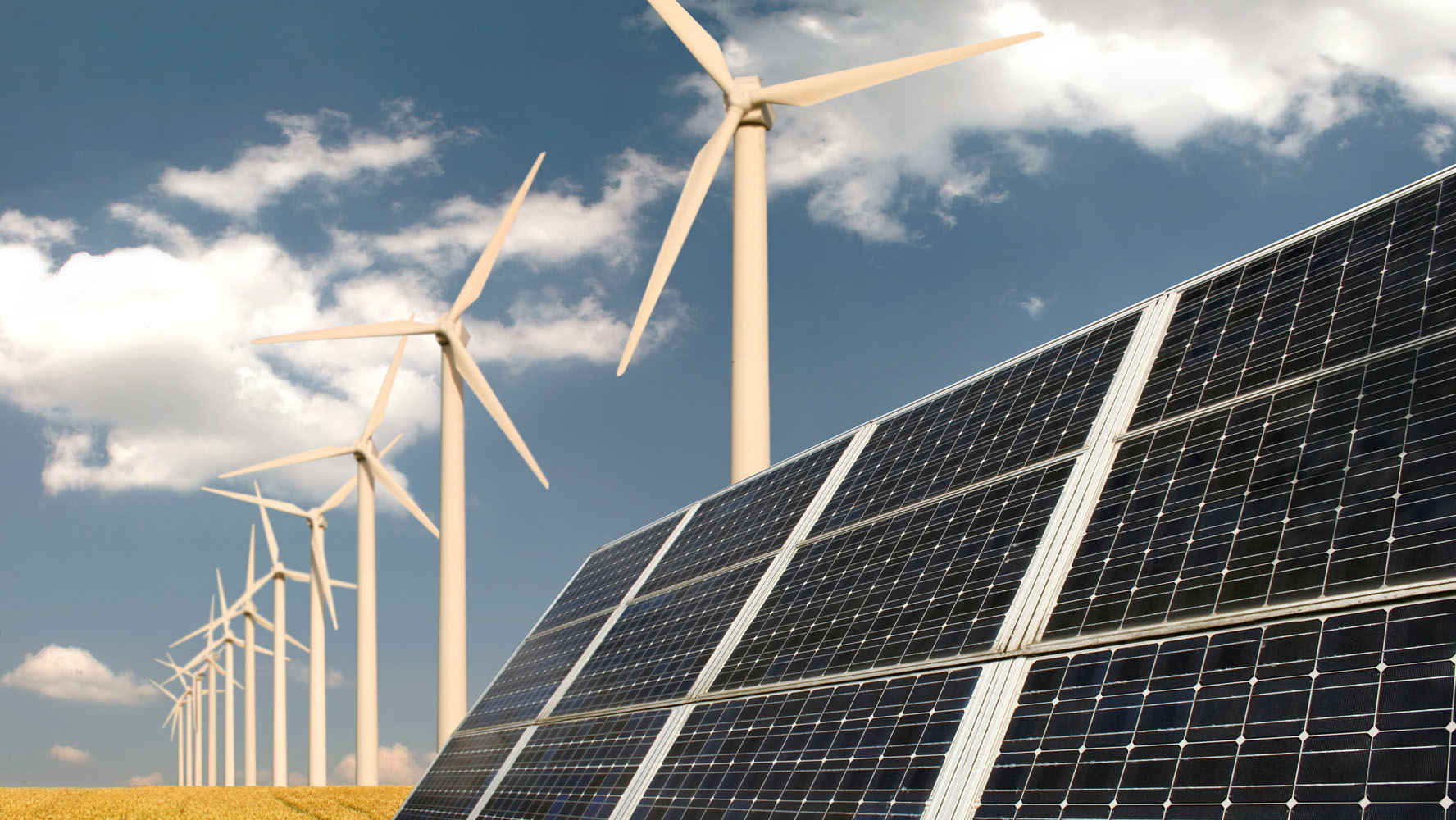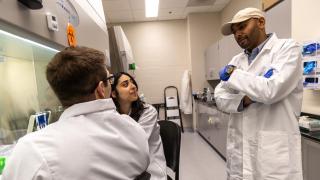
In the U.S. alone, wind energy generates enough electricity to power more than 11 million homes. And solar energy is projected to be more cost-effective than conventional energy in the next few years.
Both are abundant and environmentally friendly.
But they also are unreliable.
And that’s where Professor Oleg Zikanov comes in. Zikanov is working with colleagues around the world to find a large-scale storage solution for these energy sources.
“There are many (positive) features to wind and solar. However, they have an unpleasant feature of being intermittent. They are on their own schedule. And their schedule, quite often, is not what society needs in terms of energy,” he said. “So there is an urgent need for technology that allows you to store this energy repeatedly and in large amounts—and then keep it there for a day or two.”
Zikanov has been researching fluid dynamics, and in particular the motion of liquid metals affected by electromagnetic fields, for more than 20 years. And since new storage solution research is using these principles, he said the work was “a natural fit.”
“It’s an interesting topic and one where there will be many benefits, for both people and the environment,” he said, listing cost effectiveness and using a renewable resource.
To share information about the topic and his research endeavors, Zikanov was invited to the Pierre and Marie Curie University in Paris this summer on a visiting professorship.
During his time there, Zikanov spoke at three research seminars and gave lectures to graduate-level students. He worked closely with senior director of research Maurice Rossi, who also is interested in the role of fluid dynamics in energy storage. Rossi and Zikanov first worked together more than 10 years ago as a part of a bigger group, which also included scientists from Germany.
In addition to this recent research opportunity, Zikanov travels frequently to work with others, who include colleagues at the Moscow Power Engineering Institute in Russia and the Technical University of Ilmenau in Germany.
Through Zikanov, the work is supported by the National Science Foundation and, through his collaborators, other international foundations.
He said since it’s a new research topic, they haven’t found the answer yet—but they are getting closer.
“In a laboratory, at small size, people can make it work. But technological issues appear as soon as you start building something large enough. The metal starts moving in ways to force you to stop the operation. So we found a couple ways in which the system will not work. That’s part of the process,” Zikanov said. “We are all talking about what to do next.”
In addition to teaching his mechanical engineering courses, Zikanov spends his time communicating regularly with his peers about this research.
“Right now there is no technology, no practical solution for effectively storing large amounts of energy. But we hope to resolve it,” he said. “It’s more than natural human curiosity. It’s wanting to contribute.”





